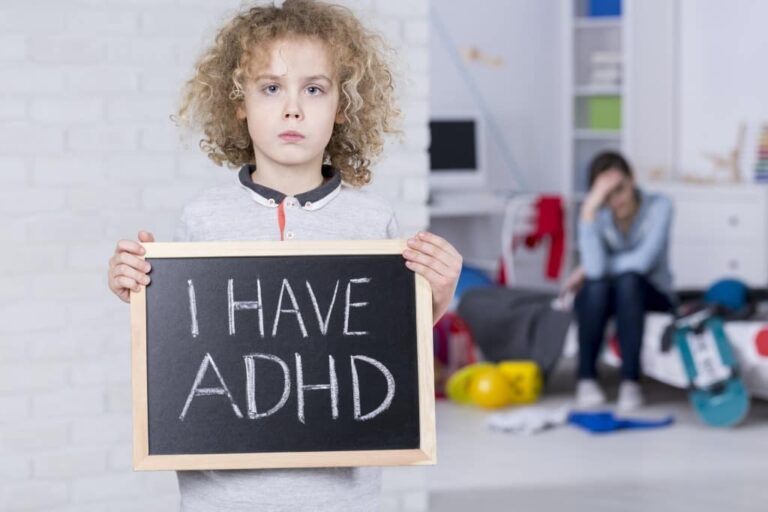Attention Deficit Hyperactivity Disorder (ADHD) is a condition that can be very difficult to treat. For some people, medication is the only solution, but for others, it may be possible to heal ADHD without medication. In this article, we will explore some of the possible healing methods for ADHD and give you tips on how to find out if they are right for you.
What is ADHD?

ADHD is a mental disorder that affects many people. It is characterized by problems with attention, focus, and hyperactivity. Many people with ADHD find that they need to take medication to manage their symptoms. However, there is hope for people who have ADHD. There are ways to heal ADHD without medication.
There are many myths about ADHD. Some people believe that ADHD is just a phase that everyone goes through. Others think that you can’t really heal ADHD without medication. Neither of these beliefs is true.
There are many ways to help manage ADHD symptoms without taking medication. You can try an online ADHD treatment, different strategies to improve your focus and attention span. You can also find ways to relax and reduce your stress levels. Finally, you can work on creating healthy habits that will support your overall wellbeing.
Symptoms of ADHD

ADHD can be a very difficult disorder to live with. It can cause problems with concentration, attention span, hyperactivity, impulsiveness and problem-solving abilities. However, there are many ways to help people with ADHD without medication.
Here are some of the most common symptoms of ADHD and some strategies for managing them:
- Difficulty concentrating. One strategy for managing difficulty concentrating is to break tasks down into smaller, more manageable chunks. This will help you stay on task and avoid getting lost in your thoughts. Another option is to take breaks often – even if only for a few minutes – to relax and refresh yourself. Meditation or deep breathing exercises can also help you focus and relax.
- Hyperactivity and impulsiveness. Another common symptom of ADHD is hyperactivity and impulsiveness. To manage these symptoms, try to set reasonable goals for yourself and find ways to reward yourself for meeting them. Also, try to establish rules for yourself that will keep you from getting overwhelmed by sudden impulses. For example, avoid eating junk food when you’re feeling impulsive or going out on risky adventures when you’re feeling hyperactive.
- Trouble staying on task. One common problem with people with ADHD is that they often lose focus and get sidetracked. To stay on task, try to establish a schedule for your day and stick to it as much as possible. This will help you avoid getting overwhelmed by the influx of new information and stimuli throughout the day.
- Problems with relationships. People with ADHD often have difficulty forming and maintaining relationships. This can be a result of their impulsiveness and hyperactivity, as well as their difficulty concentrating and staying on task. To improve your relationships, try to set reasonable goals for yourself and make sure you’re taking the time to rest and relax. Additionally, try to find supportive friends who will help you manage your disorder.
The Different Types of ADHD Treatment

There are a variety of treatments available for adults with ADHD, and not all require medication. Some of the most common types of ADHD treatment include:
- Behavioral therapy. This type of treatment involves teaching the person with ADHD different ways to handle their impulses and focus on tasks. It can be delivered in group or individual sessions.
- Cognitive therapy. This type of treatment helps people learn how to better focus their attention and problem solve.
- Educational interventions. These interventions help children and adults with ADHD catch up on missed schoolwork or learn new skills that will help them succeed in life.
- Neurofeedback therapy. This therapy uses technology to help people control their brain waves, which may improve attention span and focus. It is currently only available through specialist clinics.
The Causes of ADHD
ADHD is a common mental disorder that affects attention, focus, and hyperactivity. According to the National Institute of Mental Health (NIMH), ADHD is most commonly diagnosed in children between the ages of 6 and 12. However, ADHD can also affect adults.
There is no one cause of ADHD, but there are several possible causes. Some people with ADHD may have trouble concentrating due to a lack of focus or concentration. Other possible causes include:
– Genetics: Some people are more likely to develop ADHD because they have a family history of the disorder.
– Brain chemistry: Certain substances in the brain can affect attention and focus. For example, medications used to treat seizures or depression can also cause ADHD. Sometimes, the symptoms of ADHD go away after a person stops taking these medications.
– Conditions that affect brain function: Conditions like tumor or stroke can damage parts of the brain that control attention and mood. These conditions can cause ADHD symptoms in people who have the disorder even if they don’t have a family history of it.
The Ways to Heal ADHD without Medication

There are many ways to heal ADHD without medication, and some people find that they don’t need any help at all. Here are four ways to heal ADHD without medication:
- Get plenty of exercise. Exercise is a great way to boost your mood and energy levels, and it can also help you focus and concentrate. If you’re struggling to stay on task because of your ADHD, working out can help you stay motivated.
- Eat a healthy diet. A healthy diet is essential for overall health, but it also helps boost your mood and energy levels. Eating foods that are high in protein and fiber can help improve your focus and concentration, while also helping reduce anxiety and stress levels.
- Take supplements for ADHD. Many supplements are available that are designed to improve your focus and concentration, including magnesium, omega-3 fatty acids, B-vitamins, and Rhodiola rosea extract. It’s important to speak with a healthcare professional before taking any supplements, as some may interact with other medications you’re taking.
- Talk therapy for ADHD. If you haven’t been able to find relief from medication or other treatments, talk therapy may be an option for you. Talktherapy can help you learn how to better manage your ADHD symptoms and improve your overall mental health.
Conclusion
A lot of people with ADHD turn to medication in an effort to try and manage their symptoms. While this might work for some people, it is not always the best solution. There are many natural remedies that can be used to help improve ADHD symptoms without relying on medications. If you are interested in trying out a few of these remedies, we encourage you to do so. Remember that not everyone will respond the same way to each remedy, so experimentation may be required before finding something that works well for you.

